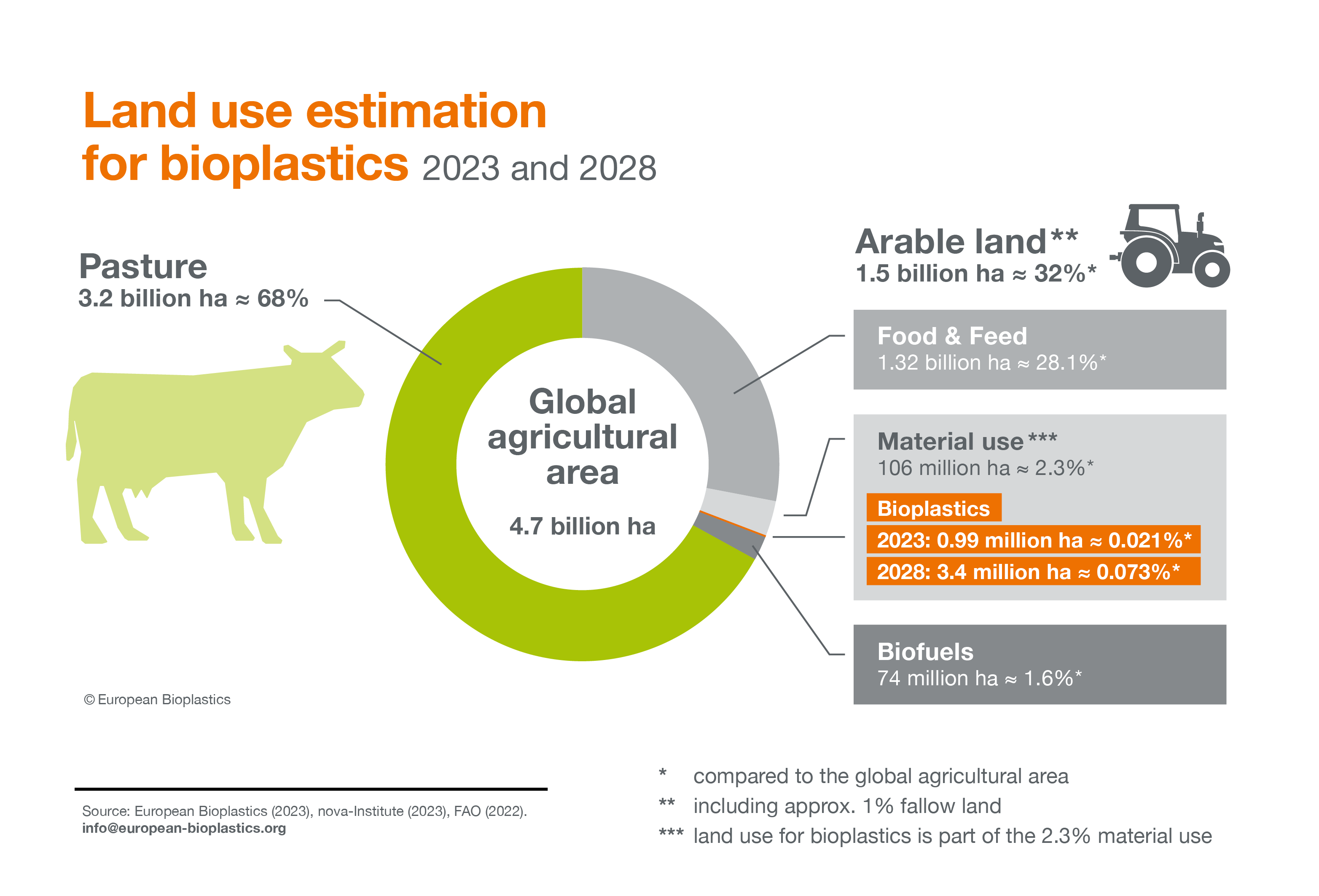According to the FAO, about one third of the global food production is either wasted or lost every year. European Bioplastics acknowledges that this is a serious problem and strongly supports efforts to reduce food waste.
Other deficiencies that need to be addressed are:
- logistical aspects such as poor distribution/storage of food/feed,
- political instability, and
- lack of financial resources.
When it comes to using biomass, there is no competition between food or feed and bioplastics. The land currently needed to grow the feedstock for the production of bioplastics amounts to only about 0.02 percent of the global agricultural area – compared to 96 percent of the area that is used for pasture and the production of food and feed.
Agro-based feedstock – plants that are rich in carbohydrates, such as corn or sugar cane, is currently the most efficient and resilient feedstock available for the production of bioplastics. Other solutions, such as non-food crops or waste from food crops that are providing ligno-cellulosic feedstock, will be available in the medium and long term.
There is no well-founded argument against a responsible and monitored (i.e. sustainable) use of food crops for bioplastics. There is even evidence that the industrial and material use of biomass may in fact serve as a stabilizer for food prices, providing farmers with more secure markets and thereby leading to more sustainable production. Independent third party certification schemes can help to take social, environmental and economic criteria into account and to ensure that bioplastics are a purely beneficial innovation.
